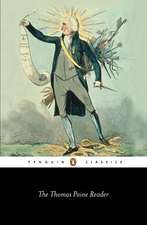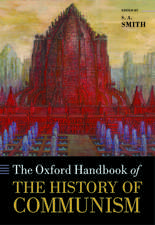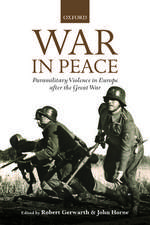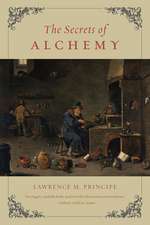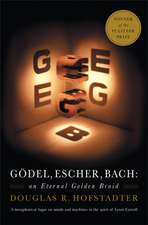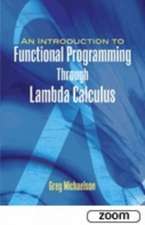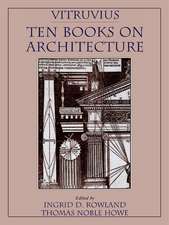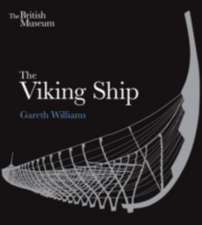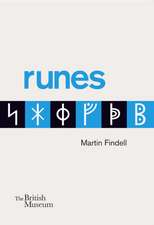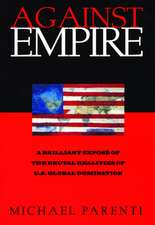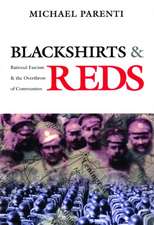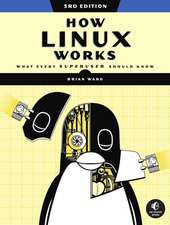Giordano Bruno: Philosopher / Heretic
Autor Ingrid D. Rowlanden Limba Engleză Paperback – sep 2009
Giordano Bruno (1548–1600) is one of the great figures of early modern Europe, and one of the least understood. Ingrid D. Rowland’s biography establishes him once and for all as a peer of Erasmus, Shakespeare, and Galileo—a thinker whose vision of the world prefigures ours.
Writing with great verve and erudition, Rowland traces Bruno’s wanderings through a sixteenth-century Europe where every certainty of religion and philosophy has been called into question, and reveals how he valiantly defended his ideas to the very end, when he was burned at the stake as a heretic on Rome’s Campo de’ Fiori.
“A loving and thoughtful account of [Bruno’s] life and thought, satires and sonnets, dialogues and lesson plans, vagabond days and star-spangled nights. . . . Ingrid D. Rowland has her reasons for preferring Bruno to Copernicus, Tycho Brahe, Johannes Kepler, even Galileo and Leonardo, and they’re good ones.”—John Leonard, Harper’s
“Whatever else Bruno was, he was wild-minded and extreme, and Rowland communicates this, together with a sense of the excitement that his ideas gave him. . . . It’s that feeling for the explosiveness of the period, and [Rowland’s] admiration of Bruno for participating in it—indeed, dying for it—that is the central and most cherishable quality of the biography.”—Joan Acocella, New Yorker
“Rowland tells this great story in moving, vivid prose, concentrating as much on Bruno’s thought as on his life. . . . His restless mind, as she makes clear, not only explored but transformed the heavens.”—Anthony Grafton, New York Review of Books
“[Bruno] seems to have been an unclassifiable mixture of foul-mouthed Neapolitan mountebank, loquacious poet, religious reformer, scholastic philosopher, and slightly wacky astronomer.”—Anthony Gottlieb, New York Times Book Review
“A marvelous feat of scholarship. . . . This is intellectual biography at its best.”—Peter N. Miller, New Republic
“An excellent starting point for anyone who wants to rediscover the historical figure concealed beneath the cowl on Campo de’ Fiori.”—Paula Findlen, Nation
Writing with great verve and erudition, Rowland traces Bruno’s wanderings through a sixteenth-century Europe where every certainty of religion and philosophy has been called into question, and reveals how he valiantly defended his ideas to the very end, when he was burned at the stake as a heretic on Rome’s Campo de’ Fiori.
“A loving and thoughtful account of [Bruno’s] life and thought, satires and sonnets, dialogues and lesson plans, vagabond days and star-spangled nights. . . . Ingrid D. Rowland has her reasons for preferring Bruno to Copernicus, Tycho Brahe, Johannes Kepler, even Galileo and Leonardo, and they’re good ones.”—John Leonard, Harper’s
“Whatever else Bruno was, he was wild-minded and extreme, and Rowland communicates this, together with a sense of the excitement that his ideas gave him. . . . It’s that feeling for the explosiveness of the period, and [Rowland’s] admiration of Bruno for participating in it—indeed, dying for it—that is the central and most cherishable quality of the biography.”—Joan Acocella, New Yorker
“Rowland tells this great story in moving, vivid prose, concentrating as much on Bruno’s thought as on his life. . . . His restless mind, as she makes clear, not only explored but transformed the heavens.”—Anthony Grafton, New York Review of Books
“[Bruno] seems to have been an unclassifiable mixture of foul-mouthed Neapolitan mountebank, loquacious poet, religious reformer, scholastic philosopher, and slightly wacky astronomer.”—Anthony Gottlieb, New York Times Book Review
“A marvelous feat of scholarship. . . . This is intellectual biography at its best.”—Peter N. Miller, New Republic
“An excellent starting point for anyone who wants to rediscover the historical figure concealed beneath the cowl on Campo de’ Fiori.”—Paula Findlen, Nation
Preț: 132.13 lei
Nou
Puncte Express: 198
Preț estimativ în valută:
25.29€ • 27.46$ • 21.24£
25.29€ • 27.46$ • 21.24£
Carte disponibilă
Livrare economică 02-16 aprilie
Preluare comenzi: 021 569.72.76
Specificații
ISBN-13: 9780226730240
ISBN-10: 0226730247
Pagini: 352
Dimensiuni: 152 x 229 x 36 mm
Greutate: 0.46 kg
Ediția:1
Editura: University of Chicago Press
Colecția University of Chicago Press
ISBN-10: 0226730247
Pagini: 352
Dimensiuni: 152 x 229 x 36 mm
Greutate: 0.46 kg
Ediția:1
Editura: University of Chicago Press
Colecția University of Chicago Press
Notă biografică
Ingrid D. Rowland lives in Rome, where she teaches at the University of Notre Dame’s School of Architecture, and is a regular essayist for the New York Review of Books and the New Republic. She is the author of many books, including The Scarith of Scornello: A Tale of Renaissance Forgery, also published by the University of Chicago Press.
Cuprins
A Note on Translation
Prologue: The Hooded Friar
1. A Most Solemn Act of Justice
2. The Nolan Philosopher
3. "Napoli e tutto il mondo"
4. "The world is fine as it is"
5. "I have, in effect, harbored doubts"
6. "I came into this world to light a fire"
7. Footprints in the Forest
8. A Thousand Worlds
9. Art and Astronomy
10. Trouble Again
11. Holy Asininity
12. The Signs of the Times
13. A Lonely Sparrow
14. Thirty
15. The Gifts of the Magi
16. The Song of Circe
17. "Go up to Oxford"
18. Down Risky Streets
19. The Art of Magic
20. Canticles
21. Squaring the Circle
22. Consolation and Valediction
23. Infinities
24. Return to Italy
25. The Witness
26. The Adversary
27. Gethsemane
28. Hell's Purgatory
29. The Sentence
30. The Field of Flowers
Epilogue: The Four Rivers
Appendix: Bruno's Sentence
Notes
Bibliography
Acknowledgments
Index
Prologue: The Hooded Friar
1. A Most Solemn Act of Justice
2. The Nolan Philosopher
3. "Napoli e tutto il mondo"
4. "The world is fine as it is"
5. "I have, in effect, harbored doubts"
6. "I came into this world to light a fire"
7. Footprints in the Forest
8. A Thousand Worlds
9. Art and Astronomy
10. Trouble Again
11. Holy Asininity
12. The Signs of the Times
13. A Lonely Sparrow
14. Thirty
15. The Gifts of the Magi
16. The Song of Circe
17. "Go up to Oxford"
18. Down Risky Streets
19. The Art of Magic
20. Canticles
21. Squaring the Circle
22. Consolation and Valediction
23. Infinities
24. Return to Italy
25. The Witness
26. The Adversary
27. Gethsemane
28. Hell's Purgatory
29. The Sentence
30. The Field of Flowers
Epilogue: The Four Rivers
Appendix: Bruno's Sentence
Notes
Bibliography
Acknowledgments
Index
Recenzii
“A loving and thoughtful account of [Bruno’s] life and thought, satires and sonnets, dialogues and lesson plans, vagabond days and star-spangled nights. . . . Ingrid D. Rowland has her reasons for preferring Bruno to Copernicus, Tycho Brahe, Johannes Kepler, even Galileo and Leonardo, and they’re good ones.”
“Whatever else Bruno was, he was wild-minded and extreme, and Rowland communicates this, together with a sense of the excitement that his ideas gave him. . . . It’s that feeling for the explosiveness of the period, and [Rowland’s] admiration of Bruno for participating in it—indeed, dying for it—that is the central and most cherishable quality of the biography.”
“Rowland tells this great story in moving, vivid prose, concentrating as much on Bruno’s thought as on his life. . . . His restless mind, as she makes clear, not only explored but transformed the heavens.”
"In her provocative biography, a marvelous feat of scholarship, Ingrid D. Rowland brings before us today the pieces of an extraordinary sixteenth-century life. . . . This is intellectual biography at its best."
"[Rowland's] lively and learned biography removes Bruno from myth and polemic . . . and restores him to the time and place that inspired his dual passion for knowledge as well as faith. She also offers a far richer and multidimensional account of Bruno's peculiar and complex intellectual itinerary than earlier scholars. . . . She takes us inside his head to see the interplay of theology, philosophy and poetry that shaped his worldview."
"Informative, engaging, and accessible. . . . Rowland's Giordano Bruno deserves to be recognized for making Bruno's life—from his quiet birth in Nola to his wretched death in Rome—accessible to an Anglophone audience as never before."


